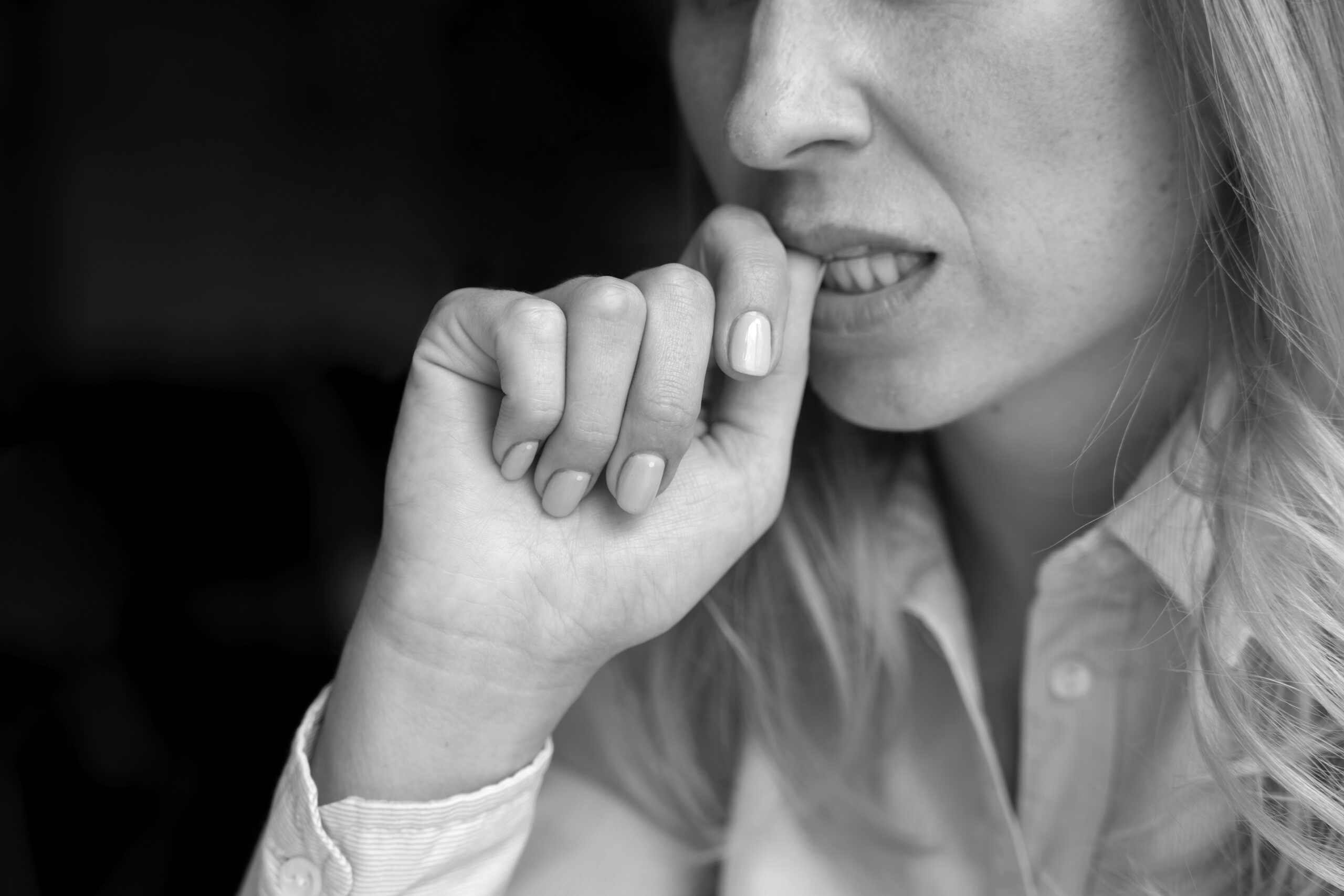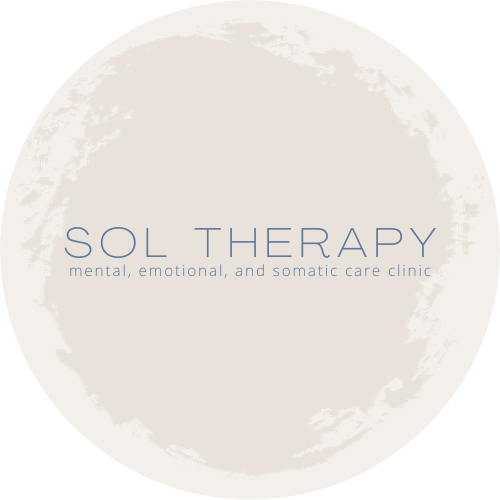Unwanted Habits

Understanding Unwanted Habits: When Coping Becomes Costly
Unwanted habits are often misunderstood as simply “bad behaviors” or signs of weak willpower. But beneath them, there’s often something deeper — a pattern that once served a purpose, even if it’s no longer helpful now. Whether it’s biting your nails, overeating, doom-scrolling, or picking your skin, these habits may have emerged to soothe, distract, regulate, or help you feel in control.
Many of these behaviors are not random — they’re adaptations. They may arise from unprocessed stress, overwhelm, or unmet emotional needs. They become familiar ways our nervous system seeks relief, especially when safer or more supportive tools weren’t available at the time.
Common Examples of Unwanted Habits
Nail biting or skin picking
Overspending or compulsive shopping
Binge eating or emotional eating
Excessive scrolling or checking social media
Interrupting others or over-explaining
Smoking or other repetitive tension-relief behaviors
Staying up too late or repeatedly hitting snooze
Compulsive tidying or over-cleaning
Harsh self-talk or rumination
Procrastination or avoidance cycles
These habits often feel frustrating, even shame-inducing. And yet, they make sense when viewed through a lens of compassion and curiosity.
Why Habits Can Be So Hard to Change
Unwanted habits are often rooted in the subconscious — in learned responses that helped us regulate in some way. When stress, trauma, or emotional overwhelm are involved, the habit can become a “go-to” — not because it’s logical, but because it’s automatic.
Trying to stop a habit without tending to what fuels it can feel like pulling out a weed without addressing its roots. The behavior may resurface again and again — not because you’re failing, but because something within still needs care.
Changing Habits by Tending to What’s Beneath Them
At Sol Therapy, we don’t see habits as flaws. We see them as signposts. They tell us where safety was missing, where needs weren’t met, where the system found ways to self-soothe in the absence of support.
Therapy isn’t about forcing change — it’s about gently helping you understand what your habit is doing for you. Then, we begin building alternative ways to meet those same needs: regulation, connection, control, soothing, or expression.
How Clinical Hypnotherapy Can Help
Clinical Hypnotherapy works at the subconscious level — where habits are stored, not just understood. In a deeply relaxed state, we help you explore the beliefs, sensations, and patterns that underlie your habit. This isn’t about controlling the mind — it’s about aligning with it. We guide you toward reframing old scripts, easing internal tension, and strengthening new pathways of choice and self-trust.
Hypnotherapy can support you in:
Shifting long-held beliefs that fuel the behavior
Creating healthier, more compassionate inner dialogue
Strengthening emotional regulation and distress tolerance
Visualizing and anchoring new patterns that serve your well-being
Lasting Change Comes from Care, Not Control
Healing unwanted habits is not about getting stricter with yourself. It’s about understanding the function your habit has been serving — and offering your system a new way forward. One rooted in awareness, choice, and internal safety.
You are not broken because you have habits that feel hard to change. You’re human — and your system is doing the best it can with what it’s known.
With the right support, change doesn’t have to feel punishing. It can be gentle. Relational. And deeply healing.
Our Services
Unwanted habits are rarely just about lack of willpower. Often, they stem from deeper patterns rooted in the subconscious — shaped by past experiences, unmet needs, or coping strategies that once served a purpose. Clinical Hypnotherapy supports clients by guiding them into a relaxed, focused state where the subconscious mind becomes more accessible and open to gentle change.
In this space, we work to uncover the emotional layers beneath the habit, shift limiting beliefs, and rewire old associations. Whether it’s nail-biting, overeating, smoking, or compulsive scrolling, hypnotherapy helps the mind build new responses — not through force, but through safety, insight, and inner alignment.
Unwanted habits are often more than just “bad behaviours” — they can be signals of deeper emotional patterns, unmet needs, or internal conflicts. Through psychotherapy and counselling, we gently explore what the habit may be protecting you from or helping you cope with.
Rather than focusing solely on stopping the habit, therapy supports you in understanding its roots — whether stress, overwhelm, anxiety, or early conditioning. Together, we build awareness, strengthen self-regulation, and develop more compassionate ways to meet the needs the habit once served. Change becomes less about control, and more about care.
Frequently Asked Questions (FAQs)
Unwanted habits are repetitive behaviors that feel hard to control, even when they interfere with your wellbeing. They may include nail-biting, overeating, overspending, skin picking, compulsive cleaning, or endlessly scrolling on your phone.
Habits often serve a purpose — offering distraction, comfort, or relief. Many are wired into the nervous system as coping mechanisms. Even if they no longer serve us, they can feel familiar or regulating. Change takes more than willpower; it begins with understanding the need beneath the behavior.
Not always — but sometimes. Habits can arise from stress, overwhelm, emotional regulation challenges, or early life patterns. For some, trauma may play a role. For others, it may simply be a learned response to discomfort. Either way, they deserve compassionate curiosity, not shame.
Therapy supports you in understanding the roots of the habit, not just the surface behavior. You’ll work with both the mind and body to gently explore what drives the pattern, build new coping tools, and develop lasting change through self-awareness and internal safety.
Yes. Clinical Hypnotherapy works with the subconscious mind to shift patterns and emotional associations. It helps reframe beliefs, calm stress triggers, and introduce new internal responses — often where conscious effort alone hasn’t been enough.
Very common — but you’re not alone, and you’re not broken. Unwanted habits often carry layers of self-judgment. In therapy, we meet these parts with compassion, exploring what the habit protects or soothes, rather than trying to “get rid” of it too quickly.
Habits are repetitive behaviors that can be changed with awareness and support. Addictions may involve more intense compulsions and withdrawal symptoms. While some habits may border on addiction, therapy can help clarify the difference and provide appropriate support.
Hypnotherapy guides you into a relaxed, focused state where your subconscious becomes more accessible. In this space, you’re more open to exploring and shifting old patterns that may be contributing to unwanted habits — gently and with awareness.
Many habits are driven by automatic patterns rooted in the subconscious. These may have once helped you cope, soothe, or feel safe. Hypnotherapy helps you access those deeper layers and update the old programming with kinder, more supportive beliefs.
Yes. You don’t need to consciously know the “why.” Hypnotherapy helps your inner system connect the dots — sometimes through imagery, emotion, or sensation — to gently explore what’s underneath without needing to relive it.
Not typically. It can complement other forms of therapy beautifully, especially when integrated thoughtfully. We always work in alignment with your existing supports.
Relapses are part of many change journeys. Hypnotherapy helps you relate to setbacks differently — with more self-understanding, less shame, and new tools to reconnect with the change you’re working toward.
Sol Therapy – Effective Holistic Therapy for Unwanted Habits through Clinical Hypnosis and Psychotherapy in Singapore
For more information on our treatments for unwanted habits in Singapore, please WhatsApp us at (65) 89422211 or email us at beinghuman@soltherapy.sg
"In joy, in peace, in that soothing inner state, you will find happiness."
- Sri Sri Ravi Shankar
